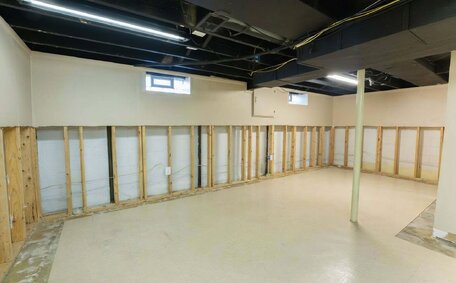Introduction to Blocked Drains: Causes and Prevention
Blocked drain issues are a common challenge in households. Understanding the common causes of drain blockages can help landlords and tenants assign responsibility and preventative measures effectively.
Tree roots, grease accumulation, and foreign objects are frequent culprits of drain blockages which, over time, cause build-up within pipes, restricting water flow. Similarly, internal pipe clogs often consist of grease, hair, and soap deposits.
Preventative measures include using drain strainers, properly disposing of oils and fats, minimising food waste disposal down drains, and seeking professional drain cleaning services periodically.
Landlord vs Tenant Responsibilities
Landlords must maintain and repair crucial plumbing infrastructure, including drains and sewer lines, in rental properties. Tenants are expected to avoid negligent damage, but are not liable for general wear-and-tear issues.
In Sydney residential rentals, landlords are responsible for blocked wastewater systems according to the NSW Residential Tenancies Act. This includes unclogging blockages that haven’t been caused by tenant negligence. It is crucial for tenants to quickly inform their landlords about any blocked drain issues requiring attention.
Landlords are required to promptly arrange repairs for emergency plumbing issues, such as burst pipes or sewage overflows that compromise health, safety, or the dwelling’s integrity. Tenants shouldn’t attempt DIY fixes. In cases where urgent repairs are neglected, tenants may commission services directly and subsequently invoice the landlords.
Landlords manage structural plumbing repairs, while tenants must avoid causing damage or blockages by improperly disposing of food waste, grease, hair, or non-flushable items. Preventative measures like employing drain strainers, reducing oil and grease disposal, and controlling food waste can significantly avert drain issues in rental properties.
Identifying Fault for Drain Blockages
Determining who responsible for a blocked drain involves investigating the potential causes and fault. Several methods are employed to pinpoint the cause of blockages:
- If tree roots have infiltrated and damaged drainage pipes, this indicates an external structural issue that it falls under the landlord’s responsibility for repairs.
- Blockages from grease, fat, solids, debris, and items like wet wipes flushed down sinks or toilets signify tenant negligence or improper usage. Tenants would bear costs here.
- For tricky cases, a plumber can run a drain camera inspection and clearly pinpoint internal issues like pipe cracks versus waste clogs. Such inspections help determine whether tenants or landlords bear liability.
- Landlord responsibility arises when sewer lines are damaged due to infrastructure works or tree roots causing pipe joint leaks.
- We also check common chokepoints like kitchen sinks or floor wastes first. If other drains in a home have issues, it points to a systemic problem requiring repair.
In summary, using drain cameras, understanding drainage layouts, and detecting actual blockage locations guides fault identification and determines who is responsible for unblocking and repairs.
Processes for Reporting and Resolving Drain Issues
If you experience a blocked drain your home, follow these steps to report and resolve the issue properly:
- Immediately inform your landlord or property manager about the affected drains and document the issue with photos if possible.
- This enables an assessment of the problem and planning for the necessary drain repairs.
- For overflowing sewage or flooding risks, you can arrange emergency repairs directly even without landlord approval to prevent property damage, but document expenses.
- For non-emergency blockages, landlords should be given 1 to 2 days to organize repairs before tenants consider alternative actions.
- Drainage repairs, replacements, cleaning, or waste removal will be quoted, with property owners usually responsible for structural repair costs.
- Once approved by the landlord, qualified plumbers will undertake the repair of blocked drains and any additional work required for a comprehensive solution.
- Future problems can be prevented by regular inspections of sinks and drains for signs of build-up, using drain strainers, and limiting the amount of grease and food waste disposed of in drains, along with considering routine professional drain inspections.
When is a Drain Blockage Considered an Emergency?
A blocked drain is considered an emergency requiring urgent attention when it threatens health, safety, or risks substantial property damage.
For example, overflowing sewage from a blocked toilet presents significant health hazards and the potential for home contamination, and a completely blocked sink or bathroom drain causing backup must be rectified immediately.
In these cases, Sydney landlords responsible for addressing emergency plumbing repairs have heightened obligations under NSW tenancy laws, regardless of fault. Tenants should notify landlords immediately while containing overflow risks.
Should landlords not respond promptly, tenants are entitled to appoint emergency repair services like Ashfield Plumbing, incurring costs that can be billed to the landlord for the urgent work done.
For non-emergency slow draining without imminent threats, standard repair timelines apply. However, in cases where Sydney Water’s main sewer clogs threaten to overflow into homes, urgent action coordinated by landlords or tenants is necessary.
Early intervention to prevent escalation of blockages paired with transparent communication between landlords and tenants, with the support of plumbers, is critical to swiftly identify and tackle the issue.
The Role of Local Councils and Water Utilities
While drainage issues on private rental properties are under your landlord’s purview, local councils and water utilities play important roles maintaining public wastewater infrastructure.
The Ashfield Municipal Council is responsible for managing stormwater drainage systems in public areas, focusing on the effectiveness of street gutters and pipes to handle rainwater runoff, but do not manage private property plumbing systems.
For metropolitan Sydney, Sydney Water oversees the main drains, sewer lines, and wastewater treatment, monitoring potential public health risks arising from sewage overflows. If blocked sewer lines are identified, causing backups into homes, Sydney Water can investigate and execute urgent repairs.
For drainage concerns on private property, it is advisable to engage professional plumbing services such as Ashfield Plumbing. We can assess faults, liaise with councils and Sydney Water if needed, and execute repairs on owners’ behalf.
While Councils and Sydney Water are tasked with maintaining public wastewater systems, responsibility for blocked drains on private properties typically falls under repair clauses in rental agreements.
Tips for Mitigating Drain Disputes
Unclear responsibilities for blocked drains may lead to disputes between landlords and tenants. Here are tips to mitigate disputes:
Proactive Communication
Tenants should notify landlords promptly when noticing drain problems and document issues with photos/videos. Clear communication prevents assumptions over liability.
Regular Maintenance
Arranging professional drain inspections and cleaning every year or when moving tenants prevents waste build-up. Tenants should use drain strainers and minimise grease/food disposal.
Understand Repair Responsibilities
- Tenants cover day-to-day drain usage issues, while landlords handle structural repairs like pipe damage.
- For tricky blockages, plumbers like Ashfield Plumbing investigate faults and determine if tenant waste or pipe defects caused problems.
Collaborate Respectfully
Tenants should remain patient and discuss realistic timeframes while landlords make repair arrangements. Landlords and tenants should collaborate with plumbers who adhere to fair trading practices for factual assessments and equitable solutions.
In summary, open communication about issues plus a spirit of good faith between landlord and tenant relations prevents most drain disputes. Depend on impartial plumbing experts, such as Ashfield Plumbing, for equitable assessments and repair responsibilities.






